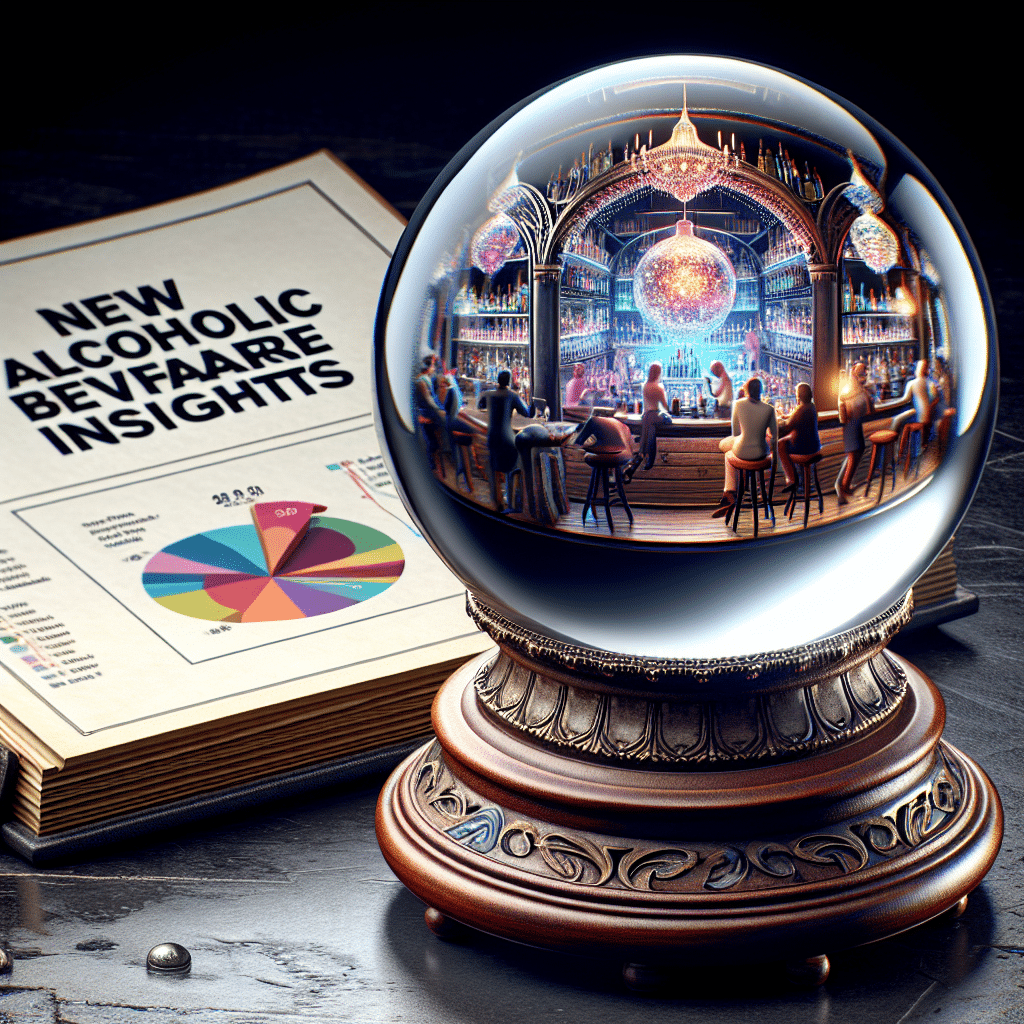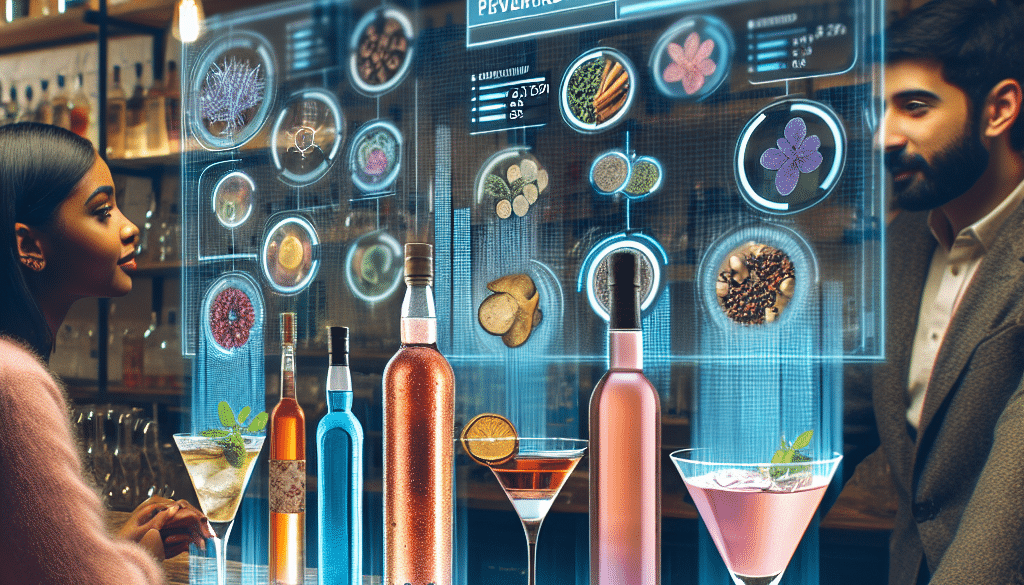Predicting the Future with New Alcoholic Beverage Insights
-
Table of Contents
- Alcoholic Beverage Trends: Predicting the Future with New Insights
- Understanding Current Consumer Preferences
- Technological Advancements in Production
- Emerging Markets and Global Influences
- Case Studies: Success Stories in Beverage Innovation
- Statistics: The Numbers Behind the Trends
- Regulatory Changes and Sustainability
- Conclusion: Key Takeaways for the Alcoholic Beverage Industry
- Enhance Your Beverage Offerings with ETprotein’s Protein Products
Alcoholic Beverage Trends: Predicting the Future with New Insights

The alcoholic beverage industry is a dynamic and ever-evolving sector, with consumer preferences and market trends constantly shifting. As we look towards the future, it’s essential to understand the forces shaping the industry to predict where it’s headed. This article delves into the latest insights and trends that are likely to influence the alcoholic beverage market in the coming years. By examining these factors, we can forecast the future of this vibrant industry.
Understanding Current Consumer Preferences
Consumer preferences are the driving force behind the trends in the alcoholic beverage industry. Recent years have seen a shift towards health-conscious drinking, premiumization, and the desire for unique and authentic experiences. Here are some key insights:
- Health and Wellness: Consumers are increasingly seeking alcoholic options that align with their health and wellness goals. This includes low-calorie, low-sugar, and low-alcohol options, as well as beverages infused with functional ingredients.
- Premiumization: There is a growing demand for premium and craft alcoholic beverages. Consumers are willing to pay more for high-quality, artisanal products that offer a unique taste and story.
- Experience-Driven Consumption: Millennials and Gen Z consumers, in particular, are looking for beverages that provide an experience. This could be through innovative packaging, limited-edition releases, or beverages that are part of a lifestyle.
Technological Advancements in Production
Technology is revolutionizing the way alcoholic beverages are produced, distributed, and marketed. Innovations such as artificial intelligence (AI), machine learning, and data analytics are enabling producers to understand consumer behavior better and tailor their offerings accordingly. For example, AI can predict flavor trends and help in developing new products that cater to specific consumer tastes.
Emerging Markets and Global Influences
The global alcoholic beverage market is influenced by emerging markets and international trends. As economies in Asia, Africa, and South America continue to grow, so does the demand for alcoholic beverages. Additionally, global travel and multicultural influences are introducing consumers to a wider variety of international flavors and styles.
Case Studies: Success Stories in Beverage Innovation
Several brands have successfully capitalized on these trends by introducing innovative products that resonate with consumers. For instance, hard seltzers have taken the market by storm, offering a low-calorie, refreshing alternative to traditional beers and cocktails. Brands like White Claw and Truly have seen explosive growth by tapping into the health-conscious trend.
Another example is the rise of non-alcoholic spirits, such as Seedlip, which cater to consumers seeking sophisticated, alcohol-free options. These products have opened up new occasions for consumption, such as midday socializing or post-workout relaxation, without the effects of alcohol.
Statistics: The Numbers Behind the Trends
Statistical data provides a clear picture of the current state of the alcoholic beverage industry and where it’s headed. For instance:
- The global alcoholic drinks market is expected to grow at a CAGR of around 3% during the next five years.
- Hard seltzer sales in the United States grew by over 200% in 2020, showcasing the rapid adoption of this new category.
- Non-alcoholic beer sales are projected to increase by 8.28% annually from 2021 to 2025.
Regulatory Changes and Sustainability
Regulatory changes and sustainability are also significant factors that will shape the future of the alcoholic beverage industry. Governments worldwide are implementing stricter regulations on alcohol advertising and consumption, which could impact sales. At the same time, there is a growing emphasis on sustainability, with consumers favoring brands that demonstrate environmental responsibility and ethical sourcing practices.
Conclusion: Key Takeaways for the Alcoholic Beverage Industry
In conclusion, predicting the future of the alcoholic beverage industry requires a deep understanding of current consumer preferences, technological advancements, emerging markets, and regulatory landscapes. Brands that can innovate and adapt to these trends will be well-positioned for success. The key takeaways for industry players are to focus on health and wellness, premiumization, experience-driven consumption, and sustainability.
Enhance Your Beverage Offerings with ETprotein’s Protein Products
As the alcoholic beverage industry evolves, there is an opportunity to incorporate high-quality protein products into your offerings. ETprotein’s range of organic bulk vegan proteins can add value to your beverages by aligning with health and wellness trends. Their non-GMO, allergen-free proteins with high purity levels are ideal for creating innovative and health-conscious alcoholic drinks that cater to the modern consumer’s needs.
About ETprotein:
ETprotein, a reputable protein and L-(+)-Ergothioneine (EGT) Chinese factory manufacturer and supplier, is renowned for producing, stocking, exporting, and delivering the highest quality organic bulk vegan proteins and L-(+)-Ergothioneine. They include Organic rice protein, clear rice protein, pea protein, clear pea protein, watermelon seed protein, pumpkin seed protein, sunflower seed protein, mung bean protein, peanut protein, and L-(+)-Ergothioneine EGT Pharmaceutical grade, L-(+)-Ergothioneine EGT food grade, L-(+)-Ergothioneine EGT cosmetic grade, L-(+)-Ergothioneine EGT reference grade and L-(+)-Ergothioneine EGT standard. Their offerings, characterized by a neutral taste, non-GMO, allergen-free attributes, with L-(+)-Ergothioneine purity over 98%, 99%, cater to a diverse range of industries. They serve nutraceutical, pharmaceutical, cosmeceutical, veterinary, as well as food and beverage finished product distributors, traders, and manufacturers across Europe, USA, Canada, Australia, Thailand, Japan, Korea, Brazil, and Chile, among others.
ETprotein specialization includes exporting and delivering tailor-made protein powder and finished nutritional supplements. Their extensive product range covers sectors like Food and Beverage, Sports Nutrition, Weight Management, Dietary Supplements, Health and Wellness Products, and Infant Formula, ensuring comprehensive solutions to meet all your protein needs.
As a trusted company by leading global food and beverage brands and Fortune 500 companies, ETprotein reinforces China’s reputation in the global arena. For more information or to sample their products, please contact them and email sales(at)ETprotein.com today.














